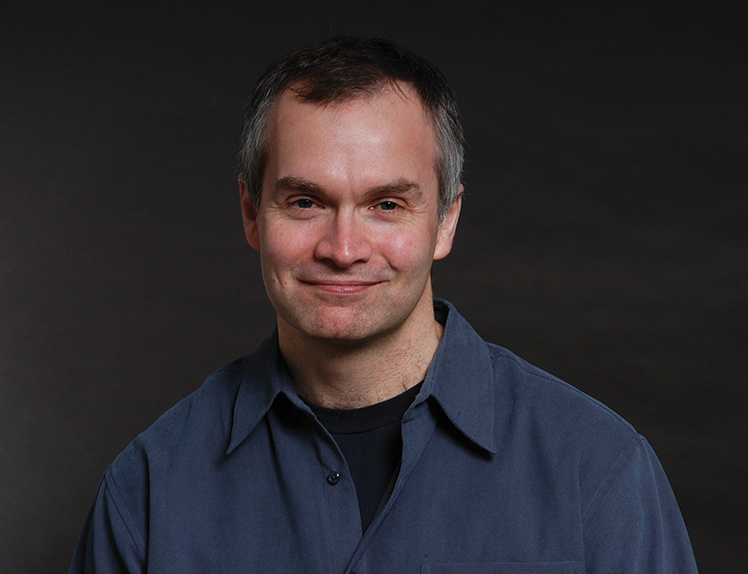Music – it’s a universal language we all speak. From ancient civilizations, through the Baroque and Renaissance periods, and on through to the beginnings of blues, jazz, rock and roll, pop and so much more, it’s impossible to imagine a world without music.
 Reading the title of local author Jamie Fitzpatrick’s most recent novel, one could think that The End of Music is a dark tale of sadness and despair.
Reading the title of local author Jamie Fitzpatrick’s most recent novel, one could think that The End of Music is a dark tale of sadness and despair.
This is not the reality. 2017’s The End of Music tells the story of one family, their passion for music, and where music can take us.
Gander in 1953
Speaking to The Herald via email, Fitzpatrick delved into the details of his latest work of fiction.
“It starts with Joyce, who arrives in Gander in 1953. She’s young, just left home, and the town is young too. It’s not even a town yet, just an airport surrounded by military barracks,” Fitzpatrick said, setting the scene.
“Everyone has a job and a bit of money. There’s international flights arriving around the clock. It’s a completely different Newfoundland than any of them have ever known, filled with anticipation and acceleration and new possibilities,” he said.
Fitzpatrick’s representation of Gander’s heyday was created by poring over non-fiction resources, such as historical volumes detailing Gander’s history, as well as stories and memories from Gander locals.
Embellishing History
Embellishing history, the author was able to create the perfect setting for his fictional characters, while paying homage to the historic town.
“It’s a pretty wild ride, and I had a lot of fun with it,” he said, explaining how his main character Joyce becomes involved in the town through a local band that plays dances and parties.
“There’s a second story that jumps ahead about 60 years,” he noted. “This one is about Joyce’s son. His name is Carter, and he was in a band when he was young, just like her. It meant everything to him,” he said, connecting his characters.
“It kind of fizzled out. Now he’s middle-aged.
There’s illness in his family and tension in his marriage. His mother (Joyce is now in her eighties) has moved into a nursing home, and it’s not going well. But there’s also new interest in his old band. It’s a chance for his music to have a second life. It’s exciting, but risky. It’s like, how do you revive an old romance when you aren’t the same person anymore?” Fitzpatrick asked.
“In some ways there’s a third character always in the background,” he added. “That’s Newfoundland, and the experiences so many of us having of leaving home or going back home, and trying to figure out what it means to live here. I don’t have any answers, but those questions are a big part of the story.” F
Faith in the Future
In writing his story about a mother and son duo, one could think that Fitzpatrick gleaned some aspects of his characters’ relationships from his own mother/son relationship.
“The relationships you grow up with will shape all the relationships that come later, whether real or fictional. That’s inevitable,” he said, choosing not to comment on specifics about his own family dynamics. “I wanted to write about people who push away the past and put their faith in the future, and pushing away family is part of that. There’s some of that in every family. But it’s front-and-centre in this one.”
This story, which puts a lot of focus on the past, follows the lead characters as they try to remember the past, or escape from it. Faced with two totally different objectives, the characters are still able to relate to one another.
“Sometimes people from the same family seem to have nothing in common, but if you hang around for a while, you start to see how much they’re alike, and how even their differences are part of the bond,” Fitzpatrick mused. “They pull together in ways that drive them apart, and split apart in ways that bring them back around to each other. Joyce and Carter are not a close family, but I’d like to think their stories play off each other in that sort of way.”
Double the Fun
As The End of Music tells the stories of two characters, woven into one, we asked Fitzpatrick if this meant his body of fiction was double the work, or double the fun.
“Storytelling is a bit of a lark, really. You get to make it all up,” he explained. “I can invent people, and change them around as I see fit, and let my imagination put them in all kinds of scrapes and dilemmas and situations. So let’s call it double the fun.”
The fun continued this past fall at a launch party at the Johnson Geo Centre in St. John’s. Calling the launch “a little booster shot for your ego,” Fitzpatrick recounted conversations with attendees who told the author about their personal relationship with music and their connections to Gander.
He was overjoyed when, after reading an excerpt from his novel, a woman told him how Joyce reminded her of her Aunt Edna. “It’s very gratifying when your story strikes a chord with someone like that,” Fitzpatrick said.
Though fictional, the book is filled with relatable emotions and circumstances, particularly suited for those who have had a go in the music biz, or endured love, loss, complicated family relationships, and most of all, life in Newfoundland.
“I’d like to think that Joyce and Carter are Newfoundlanders whose stories haven’t been heard before, the kind of people who don’t figure in the usual stories that come out of here. Those are the kinds of stories I like.”
